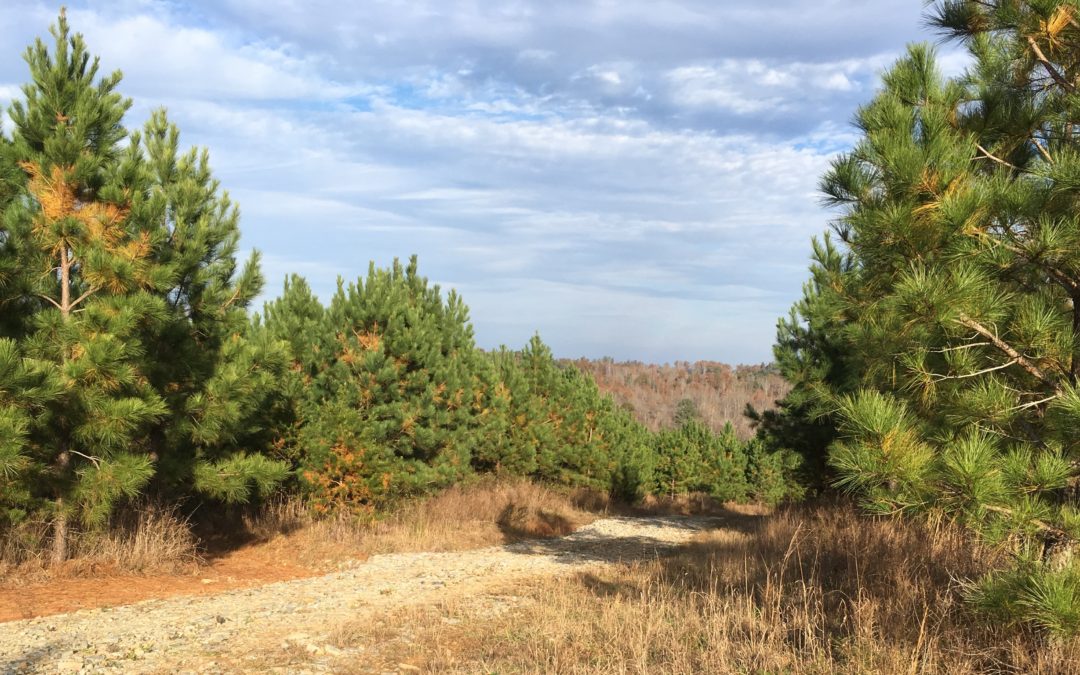Weaving together site analysis and assessment and the “voice of the land”, Kindred Roots has developed a concept design related to the development of different land-uses or “storylines” at Catawba Run, Foragable Community’s flagship project near Nebo NC. Each storyline defines different kinds of engagements between the land and visitors to the property. Three different storylines bring together production, infrastructure, roads and trails, water, and forest management to lay out a clear and holistic vision for the ecological reclamation of Catawba Run over the next 10 years. The Pocket Garden Storyline invites visitors into various garden and wildlife spaces, the Forest Management Storyline offers visitors an opportunity to experience different kinds of forests on the site, and the Broadscale Agriculture Storyline demonstrates agroforestry and annual crop production.

Storylines of Catawba Run and Glossary of Place Names
Pocket Garden Storyline
Open fields, education, gathering space, and production dominate the Pocket Garden storyline at Catawba Run. Vegetable and pollinator gardens, orchards and food forests tell the story of how people can feed themselves while living well on the land and share the legacy of the different kinds of relationships cultivated between plants and people in the ecosystems of the Piedmont region.
Trails connect each “pocket garden” to invite visitors on a journey through different kinds of ecological food production systems and campsites encourage them to spend some time exploring each garden as a unique expression of collaboration between land and people.
Chestnut fields, wetlands, wildflower meadows, vegetable gardens, and apothecary gardens are all included in the many pocket gardens planned for this storyline. Trails will encourage visitors to explore along the river, take in the views along a high knoll that runs through the property and learn about native and introduced perennial food plants along the foraging trail.

Plants and shrubs that support pollinators like this Eastern Tiger Swallowtail will make up the Pollinator Garden, one of many envisioned gardens in the Pocket Garden Storyline.
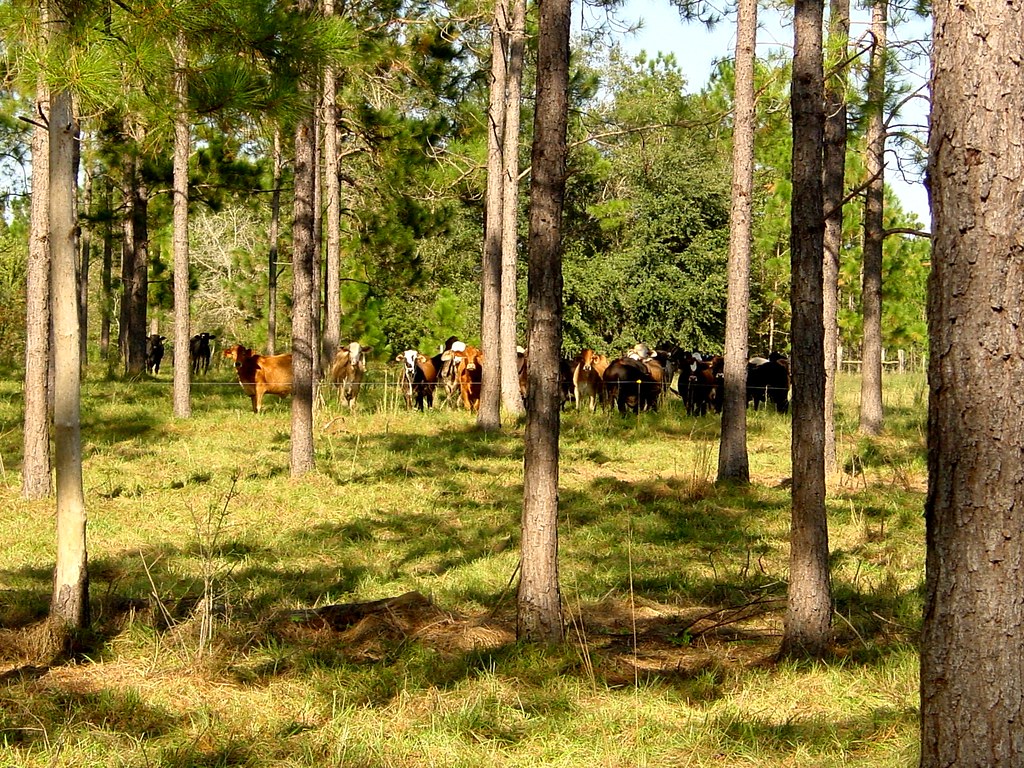
Silvopasture (pictured here) is the intentional combination of trees, forage plants and livestock together as an integrated, intensively-managed system.
Forest Management Storyline
The Forest Management Storyline engages visitors in hardwood and shortleaf pine forests, loblolly pine forests and silvopasture woven together to demonstrate a diversity of forest types and ecological forest management practices at Catawba Run. Visitors will be able to experience how the restoration of native short leaf pine and mixed hardwood forests using different management techniques develops over time. Selectively thinned native hardwood stands featuring oak and hickory will be managed to promote the health of native forest plants, plus a diversity of introduced fruits and nuts, mushrooms and medicinals. Commercial timber production areas will demonstrate leading edge agroforestry practices such the integration of livestock into forests – a practice called silvopasture. Using different trails, visitors can walk through forested areas to forage, explore, and see how forest management practices and species chosen shape a landscape.
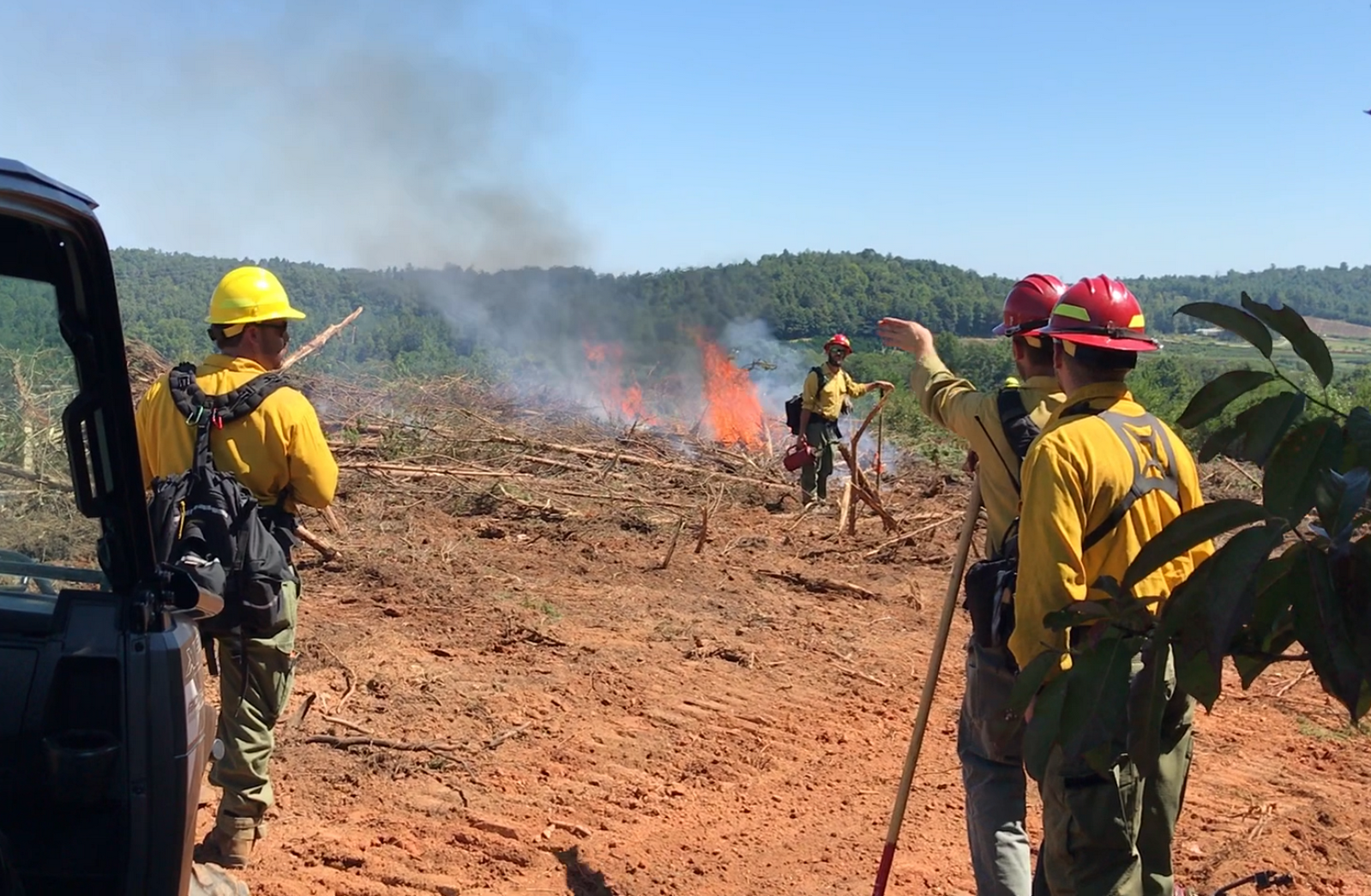
Restoration practices like drum chap and burn (pictured here) demonstrate leading edge ecological management that prepares the land for new plantings of native short leaf pine, fruits and nuts, as well as mushrooms and medicinals in the Forest Management Storyline.
Broadscale Agriculture Storyline
The Broadscale Agriculture Storyline invites visitors to explore ecological alternatives to conventional row crop agriculture dominated by corn and soybeans this is common in the region today. This storyline leads visitors through a diversity of practices – such as diversified crop rotation, strip cropping, incorporation of edible perennials in hedgerows and riparian areas, and alley cropping – that blend annual and perennial crops to achieve multiple goals food production and ecological health.
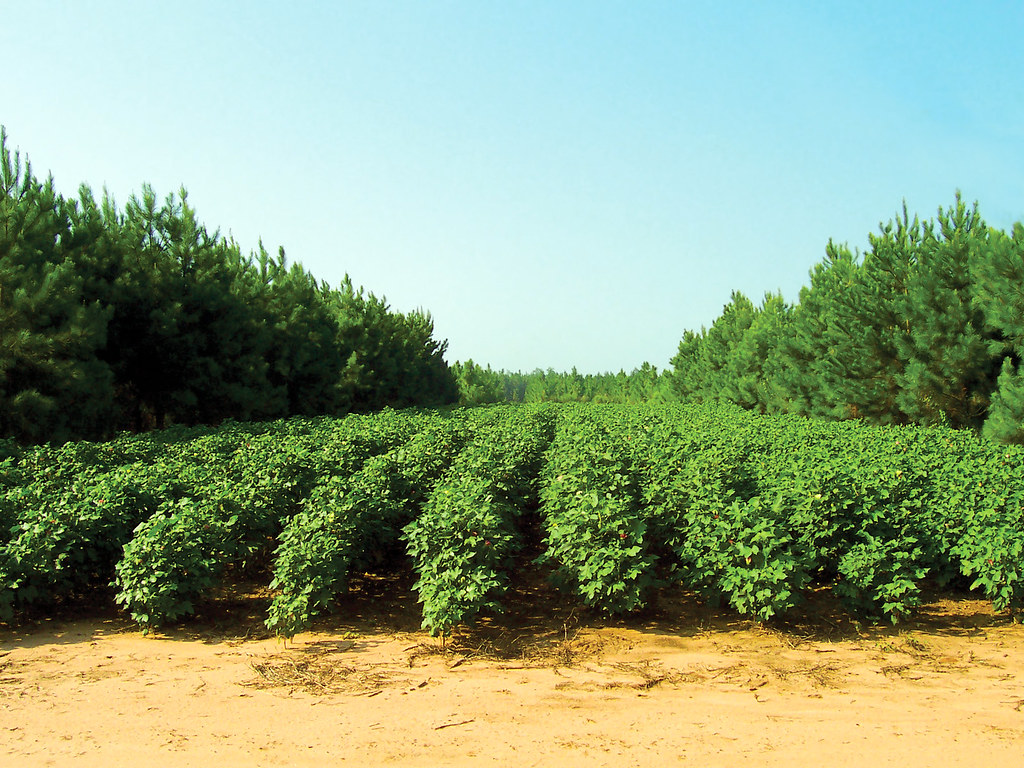
Alley cropping system consisting of pine trees and cotton. Alley cropping is the cultivation of food, forage or specialty crops between rows of trees
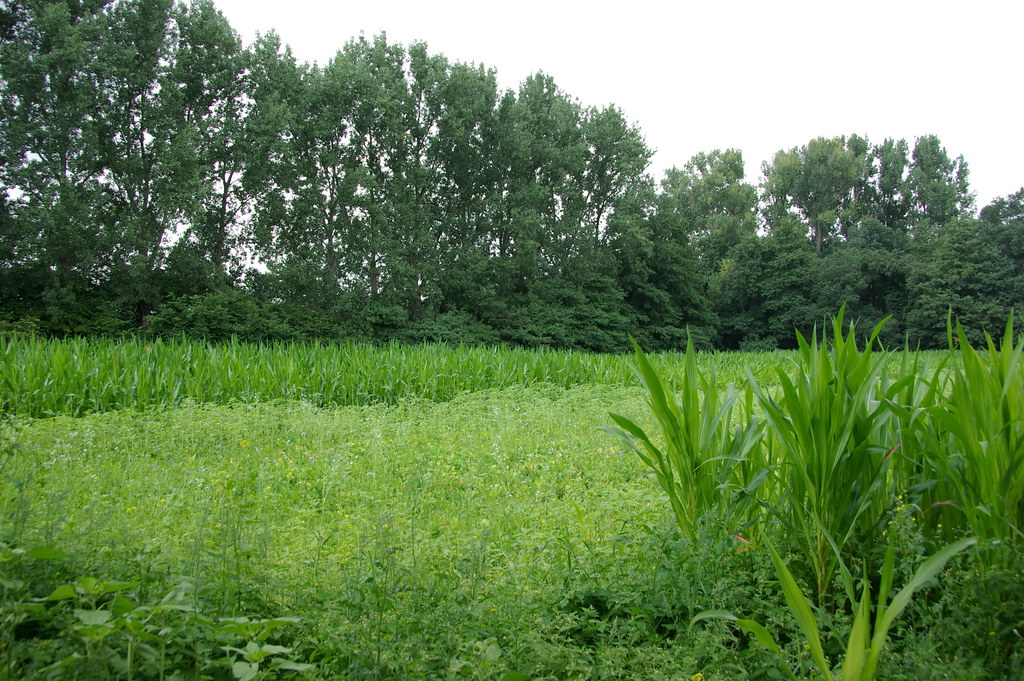
Strip cropping system using corn and cover crop. Strip cropping combats erosion by incorporating cultivated crops and sod forming crops in strips side by side.
Catawba Run is 275 acres of old growth, unmanaged regrowth, and sustainable pine plantation located in the Piedmont region of North Carolina, near Nebo, just west of Morganton. This land is the setting for Foragable Community’s next demonstration of our shared values: to use ecological management practices and resilience principles to restore the health and wellbeing of degraded landscape, and concurrently have a positive impact on the lives of people who participate in this vision of redemption and renewal.
The Catawba Indian Nation are the descendants of the original inhabitants of land that we call Catawba Run. The Catawba, or “the people of the river” pronounced yeh is-WAH h’reh in their native tongue, were farmers, renowned potters, and stewards of the land in most of the Piedmont of South Carolina, North Carolina, and Southern Virginia. Foragable Community acknowledges that Catawba Run is on this ancestral land.
Kindred Roots Design LLC. is a consulting collective that draws from diverse backgrounds rooted in agroecology and community development to weave together holistic approaches for land and community transformation. The core of our collective is three women brought together by shared interests and a vision of the world they want to inhabit. In the Spring of 2019, with the help of Kindred Roots LLC., Foragable Community began the long-term planning process for our first major land acquisition – Catawba Run.

